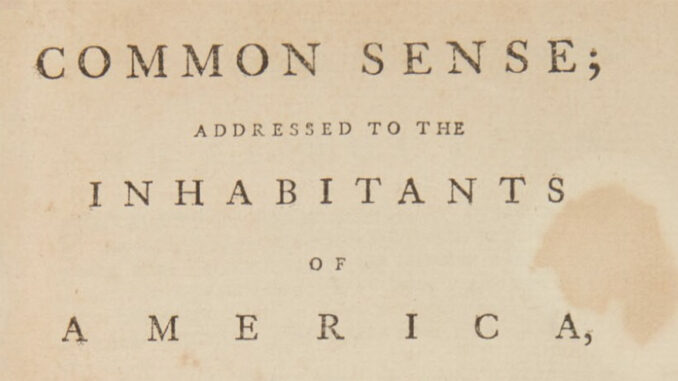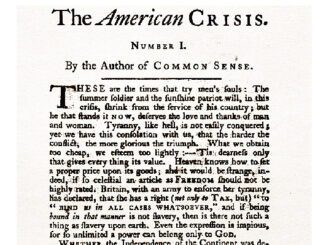
Some writers have so confounded society with government as to leave little or no distinction between them.
They are not only different but have different origins. Society is produced by our wants, and government by our wickedness. The former promotes our happiness positively by uniting our affections, the latter negatively by restraining our vices. The one encourages intercourse, the other creates distinctions.
The first is a patron, the last a punisher.
Society in every state is a blessing, but government even in its best state is but a necessary evil. In its worst state, government is an intolerable one. When we suffer, or are exposed to the same miseries by a government which we might expect in a country without government, our calamity is heightened by reflecting that we furnish the means by which we suffer.
Were the impulses of conscience clear, uniform, and irresistibly obeyed, man would need no other lawgiver. Since that is not the case, he finds it necessary to surrender up a part of his property to furnish means for the protection of the rest. He is induced to do so by the same prudence which in every other case advises him ― out of two evils, choose the least.
It follows that with security being the true design and end of government, whatever form appears most likely to ensure it to us, with the least expense and greatest benefit, is preferable to all others.
In order to gain a clear and just idea of the design and end of government, let us suppose a small number of persons settled in some sequestered part of the earth unconnected with the rest. They will then represent the first peopling of any country.
In this state of natural liberty, society will be their first thought. The strength of one man is so unequal to his wants and his mind so unfitted for perpetual solitude, he soon will seek assistance and relief from another person who in his turn will require the same.
Four or five united would be able to raise a tolerable dwelling in the midst of a wilderness. One man might labor most of his life without accomplishing anything. When he had felled his timber, he could not remove it nor erect it after it was removed. Hunger in the meantime would distract him from his work and every different want would call him a different way. Disease or misfortune would be certain death for the single man for though neither might be mortal, either could disable him from living, and reduce him to a state in where he would prefer to die than continue living.
Necessity like a gravitating power would soon form our newly arrived emigrants into society. Voluntary reciprocal blessings would be freely offered and received. The obligations of law and government would be rendered unnecessary as long as they remained perfectly just to each other.
However, as nothing but Heaven is impregnable to vice, it will unavoidably happen as they surmount the first difficulties of emigration that they will begin to relax in their duty and attachment to each other. This neglect will point out the necessity of establishing some form of government to supply moral virtue to the community.
Some convenient tree will afford them a State House under the branches of which the whole Colony may assemble to deliberate on public matters. It is more than probable that their first laws will have the title only of regulations and to be enforced by no other penalty other than public disapproval.
In this first parliament every man by natural right will have a seat.
As the colony increases, the public concerns will increase likewise. The distance at which the members may be separated will make it too inconvenient for all of them to meet on every occasion as at the beginning.
This will point out the need for them to consent to leave the legislative part to be managed by a select number chosen from the whole body who are supposed to have the same concerns at stake which those have who appointed them and will act in the same manner as the whole body would act were they present.
Here then is the origin and rise of government; namely, a mode rendered necessary by the inability of moral virtue to govern the world. Here too is the design and end of government ― freedom and security.
I draw my idea of the form of government from a principle in nature which no art can overturn ― the more simple anything is, the less liable is it to be disordered.
Adapted and modernized from the first chapter of “Common Sense,” a pamphlet written by Thomas Paine in 1776.


